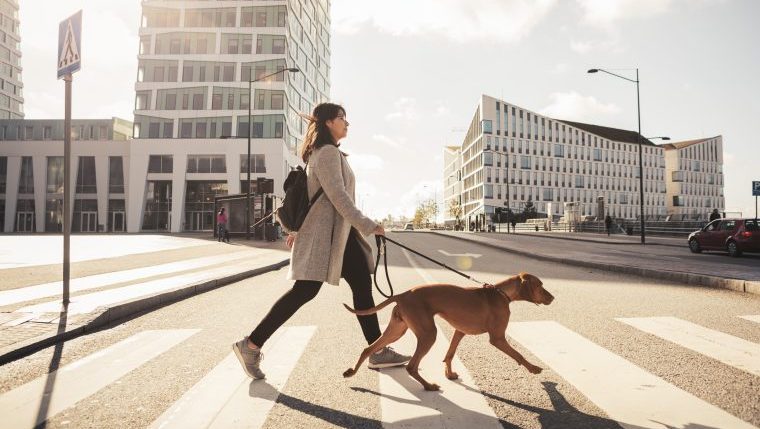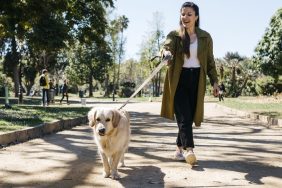
It isn’t easy to make a career pivot, especially when a job change isn’t your choice. But sometimes, a fresh start is just what the doctor (or career counselor) ordered. That was the case for Sofia Mastro, a special education aide who got laid off and ended up finding a side hustle as a dog walker.
A New Career Path
As Mastro told Fast Company, the Los Angeles resident was laid off from her one-one-special education aide job in the fall. She job-hunted for a few weeks but realized that none of the gigs were compatible with her education to become a speech-language pathologist. She needed something flexible to support her while she finished school. That’s when she decided to sign up on Wag, the dog-walking app.
Mastro now works part-time, about five hours a week, as a dog walker.
“On a typical day, I will check Wag when I wake up to see if there are any available walks and if they are within a reasonable distance from me (I usually will drive up to 6 miles for a walk),” she told Fast Company. “So I try to hit one walk in the morning, come back home and get ready for the day, do homework, play with my own dogs, and then try to hit another walk in the afternoon.”
“Sometimes I will get to a really hot area, where there are a lot of walk requests happening close by and I can do about three in a row,” she continued. “I also get regular requests from pet parents that I try to keep in mind for the day. I usually try to keep my 1 p.m. open because that’s usually when I’ll get requested by the regular. At the end of the day around 5 p.m. or 6 p.m., I’ll go back home, have dinner, and sometimes I’ll accept a late-night walk if it’s close by. Like last night I did a 30-minute walk at 9:30 that was close to me.”
The Pros and Cons of Being a Dog Walker
Mastro says she enjoys her side hustle on Wag because the process to become a dog walker, schedule walks, and make money is “pretty easy.” She had previous dog-walking experiencing, and goes the extra mile by penning “cute blurbs” about the dogs she walks and leaving comments about them for their parents. Those little touches have bumped up her ratings and increased her tips.
As nice as the flexibility is, though, Mastro admits that the pay rate is lacking. “Wag takes a pretty good cut of your earnings and, overall, I’m getting paid less per walk than I did at my last two pet care companies,” she says. “However, with a little hard work, you can make up the difference—there is always a walk available to take. “
As far as occupational hazards go, Mastro confesses that she falls in love with most of the dogs she walks. One of her regulars is a Dachshund mix rescue dog named Felix.
“He’s super sweet and always happy to see me, which makes the walk fun,” she says. “He’s about the same size and age as my own dogs and lives really close to me, so he has a special place in my heart.”
While previous companies she worked for included a meet-and-greet with the dogs before walking commenced, Wag doesn’t work that way, which can be “a little intimidating.” That’s why Mastro brings treats on walks and interacts with them cautiously, keeping her charges away from other pups and people just to be safe. She also tries to ease pet parents’ anxiety about handing their fur babies over to a stranger by making them as comfortable as possible and going above and beyond in her dog-walking work.
It doesn’t sound like Mastro plans to make dog-walking her full-time, permanent career, but as far as an extra gig to keep the cash flowing while she finishes school goes, it’s doggone “paw”fect.









